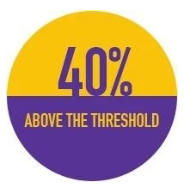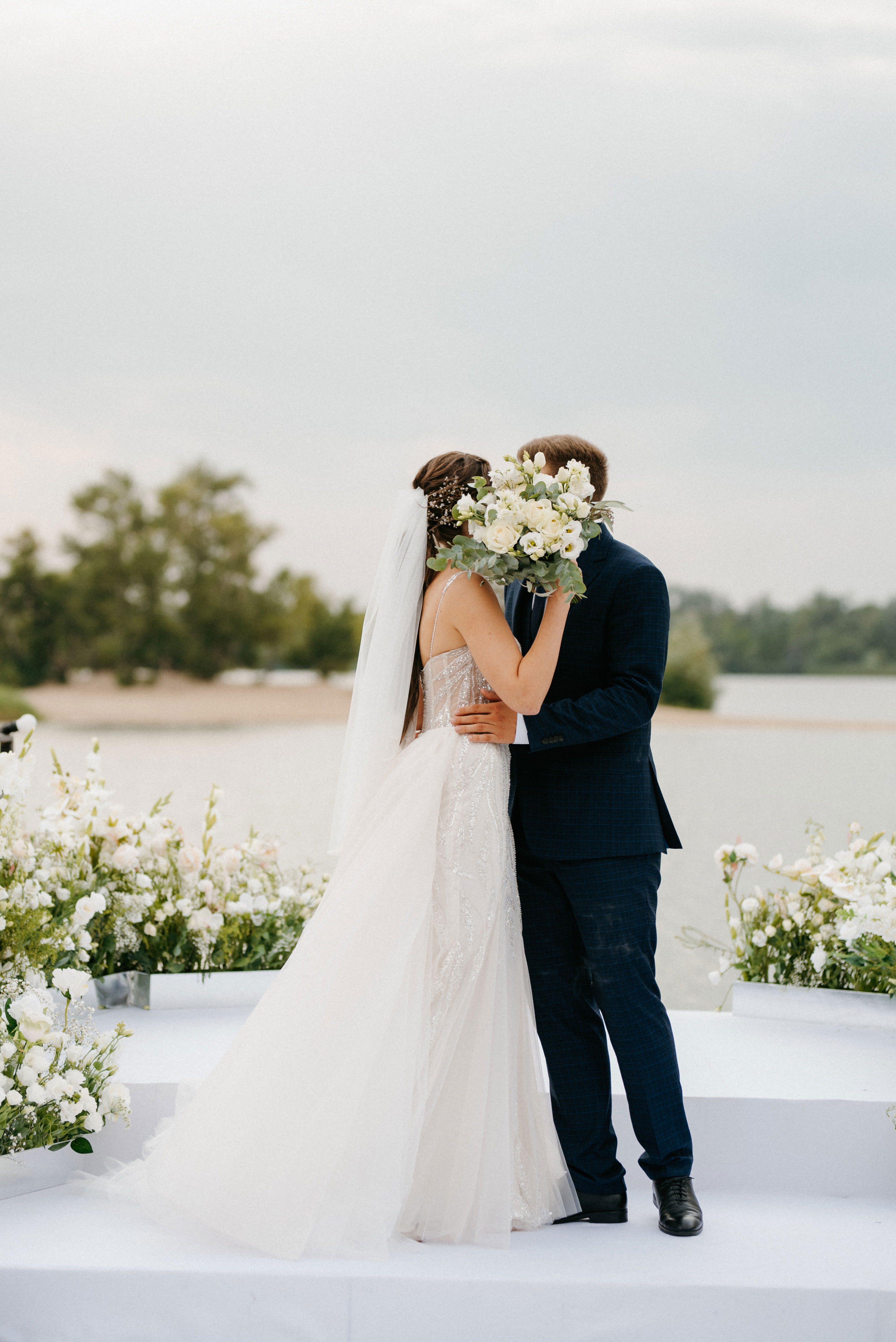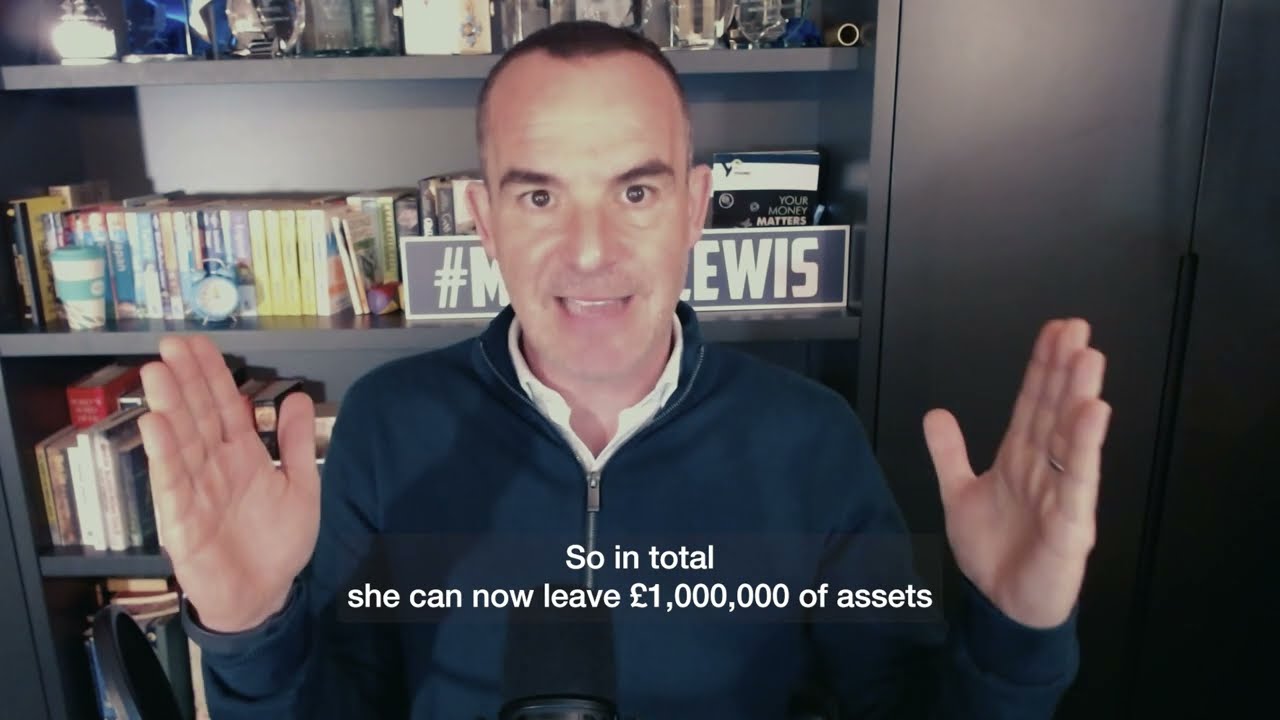Martin Lewis: Inheritance tax will you pay it?
Inheritance tax can cost loved ones £100,000s when you die, with it generating £7 billion for HM Revenue & Customs in one recent tax year alone. But in reality the vast majority of people (around 96%) don't have to pay a penny, while the few who do can legally avoid huge swathes of it. This guide runs through five inheritance tax need-to-knows.
Important: The Government has announced that, from the 2027-28 tax year, pensions will form part of your 'estate' – meaning they will be subject inheritance tax (IHT). This guide explains how inheritance tax works at the moment. "
Five inheritance tax need-to-knows
First a word on the politics of inheritance tax (IHT), which is controversial. The argument in favour of inheritance tax is that without it, you perpetuate inherited wealth – so the children of the rich stay rich. Inheritance tax redistributes income, with some of that money going to the state to be distributed for the benefit of all. The argument against inheritance tax is that when money's earned, tax is paid at the time, so to pay tax on it again isn't fair.
After years of rocketing property prices, more estates are being caught by the inheritance tax threshold – a threshold that was frozen until April 2030 in the Government's 2024 Autumn Budget. As a result, inheritance tax is high up the political and social agenda. Even so, it remains the case that less than 5% of estates currently get charged inheritance tax – meaning most won't be affected at all. But as it's a financial fact for some, we've five inheritance tax need-to-knows to help figure out if you (or those inheriting your estate) will likely pay it, and if so, how to legally soften the blow. First though, watch MoneySavingExpert.com founder Martin Lewis's four-minute introductory video on inheritance tax (while the video was filmed earlier this year, everything in it still stands).
1. Anything left to a spouse or civil partner is EXEMPT from inheritance tax
Inheritance tax is a tax on the 'estate' of someone who's passed away. But as we've said, only around one in 25 families (around 4%) have to pay it, as most estates fall below the inheritance tax threshold.
One key reason for this is that if the deceased was married or in a civil partnership, then anything they leave to their spouse or civil partner will be exempt from inheritance tax. This applies regardless of the estimated value of the deceased's estate.
So, even if the deceased has a million pounds to their name when they die, if they leave it all to their surviving spouse or civil partner, inheritance tax WON'T be charged (anything they don't leave to their spouse or civil partner might be liable for inheritance tax though – read on for the full details).
Do note that this DOES NOT APPLY if you're simply cohabiting with your partner, even if you've lived together for years and have 20 children. In other words, if you live with your partner but are not married or in a civil partnership, any money you leave your partner when you die will count towards your individual inheritance tax-free allowance (more on this below).
2. You do not pay inheritance tax on the first £325,000 you leave to other people (inheritance tax threshold)
Even if you leave part of your estate to somebody other than your spouse or civil partner, it's still unlikely that you'll need to pay inheritance tax. That's because everybody gets a £325,000 inheritance tax-free allowance. So, if the value of the estate (or anything that doesn't go to a spouse/civil partner) is below the £325,000 inheritance tax threshold, there's no inheritance tax to pay. (This is also true if you leave everything over £325,000 to a charity or a community amateur sports club.)
If there's tax to pay, the estate will theoretically be taxed at 40% on anything above the £325,000 threshold when you die (or 36% if you leave at least 10% of the value after any deductions to a charity in your will).We say 'theoretically' because, depending on your circumstances, there are ways to boost this £325,000 tax-free allowance to £500,000+. We explain how in the next two need-to-knows...Important. Currently, any pensions the person had do not typically form part of their estate (meaning pensions are not generally subject to inheritance tax). However, this is set to change in the 2027/28 tax year when pensions will start forming part of people's estates.

3. Passing on your home can BOOST your allowance to £500,000 (if you leave it to your children or grandchildren)
In the current tax year, 2024/25, no inheritance tax is due on the first £325,000 of any estate, with 40% normally being charged on any amount above that.
- £325,000 – this is the basic inheritance tax allowance that everyone gets, which still applies.
- £175,000 – since 2017, everyone has also been able to take advantage of something called the 'residence nil-rate band', commonly known as the 'main residence' band. This is an additional allowance you'll receive ON TOP of the existing £325,000 inheritance tax allowance if you pass on your main residence to your children (including adopted, foster and stepchildren) or grandchildren.
This means inheritance tax might not be due on the first £500,000 of your estate (£325,000 + £175,000), depending on who you leave your home to. However:
- The £175,000 main residence allowance only applies if your estate is worth less than £2 million. (On estates worth £2 million or more, the main residence allowance will decrease by £1 for every £2 above £2 million that the deceased's estate is worth.)
- Your home won't qualify for the £175,000 main residence allowance if it's in a 'discretionary will trust', even if the beneficiaries of the trust are your children or grandchildren.
- If your home's not worth £175,000 (or £350,000 if two spouses' allowances are combined – you can't combine allowances if you're not married or in a civil partnership), you can't use the main residence allowance to offset tax against other assets. So, technically it's an allowance of 'up to' £175,000.
An example may help...Let's say you've got an estate worth £525,000, including a home worth £200,000. You've decided to leave your home to your children. This means no inheritance tax will be charged on the first £500,000 (£325,000 basic allowance + £175,000 main residence allowance). There'll be a 40% charge on the remaining £25,000 value of your home, giving a total of £10,000 in tax (presuming you're not leaving anything to charity).If you weren't leaving your home to your direct descendants, there would be nothing to pay on the first £325,000 of your estate, and 40% on the £200,000 value of your home, meaning a total of £80,000 to pay in inheritance tax.
Quick question

4. Any unused inheritance tax allowance passes to your spouse
This can sound complicated, so here's an example...Mr and Mrs Youngatheart have assets worth £1 million between them. Mr Y dies first in January 2025 – leaving everything to Mrs Y – so his £325,000 tax-free allowance is passed on, as well as his £175,000 main residence allowance. In total, this means Mrs Y may have an up-to £1 million tax-free allowance: her allowance, plus her inherited allowance from her deceased husband.You don't need to do anything to activate this – the executors of your will just need to send certain documents to HM Revenue & Customs (HMRC) within two years of your death – see HMRC's guidelines.

5. Still likely to have to pay inheritance tax? There are ways to legally cut the bill
Specifically, money or gifts given away during your lifetime can affect how much inheritance tax your estate will need to pay. So, if you're planning on making gifts, it's worth getting familiar with the rules.In simple terms, any gifts given more than seven years before your death WON'T be liable for inheritance tax (unless they form part of a trust).But gifts given in the seven years prior to your death will count towards your £325,000 inheritance tax allowance. So even if the gift(s) you give in the seven years prior to your death amount to less than £325,000, they could have an impact on how much inheritance tax will be charged on the rest of your estate.If your gift(s) amount to more than £325,000 in the seven years prior to your death, then inheritance tax on the amount above £325,000 (in addition to any inheritance tax due on the remaining estate) will be charged on a sliding scale (up to a maximum of 40%).But before we delve deeper into how this sliding scale works, be aware that everyone is able to give away a certain amount in exempt gifts each year...
Tax-free gifts
Each tax year, you are able to give away a certain amount of money or possessions tax-free (in other words, gifts that are exempt from the seven-year inheritance tax rule).Full information about tax-free gifting on Gov.uk, but in brief it means you can:
Give away £3,000 (annual exemption)
Give to charities with no limit
Give £250 to everybody you know
Give money freely from your income (as long as it doesn't affect your lifestyle)
Give wedding gifts (up to a limit)
Fund a loved one's living costs
When might inheritance tax be due on a gift?
Inheritance tax will be due on gifts given away less than seven years before you die if the following apply:
- The gifts are not considered tax-free gifts (in other words, they're not in the list above).
- The gifts amount to more than £325,000 (the tax-free threshold).
(Remember that gifts given away in the seven years before your death which don't exceed the tax-free threshold will still eat into your estate's £325,000 tax-free allowance.)The portion of any gifts above £325,000 will have inheritance tax charged on it on a sliding scale. It works as follows:
Inheritance tax on gifts above £325,000
| Years between gift and death | Rate of inheritance tax |
| Less than 3 years | 40% |
| 3 to 4 years | 32% |
| 4 to 5 years | 24% |
| 5 to 6 years | 16% |
| 6 to 7 years | 8% |
| 7+ years | 0% |
Here's an example of how this works in practice:
Sally Saver sadly passes away. She was not married or in a civil partnership when she died. In the nine years before her death, she gave away three significant sums of money:
- £50,000 to her brother, nine years ago.
- £325,000 to her sister, four years ago.
- £100,000 to a friend, three years ago.
There's no inheritance tax to pay on the £50,000 gifted to her brother, as it was given more than seven years ago. Likewise, there isn't any to pay on the £325,000 she gave to her sister, as this is covered by the inheritance tax allowance.
But her friend (not the estate) must pay inheritance tax on the £100,000 given to them, at a rate of 32%, as this was given by Sally after she'd breached the inheritance tax threshold. The inheritance tax due on this gift is therefore £32,000.
At the time of her death, Sally's remaining estate was valued at £400,000. As there was no inheritance tax-free allowance left to use (it all went on the gifts), inheritance tax on the entire estate would be due (at 40%), equivalent to £160,000.
What constitutes a gift?
A gift must be a genuine unconditional gift that you will not gain from; something given to someone without any reservation, no nods, winks or mutual backscratching. The biggest asset most people have is their home, yet trying to give this to your children won't work if you continue to live in it (unless you pay market rent to them for it).Many gifts are valid ways of reducing your inheritance tax bill (as described above). Yet if any are given conditionally (barring a wedding gift), with the intention of receiving something in return, they could fail to work, so watch out. See Gov.uk for more information on what exactly constitutes a gift. If you do plan to make large lifetime gifts, the beneficiaries could take out life insurance against the potential inheritance tax bill. Most gifts into trust are now subject to inheritance tax even if made during your lifetime, but this is an area where you would need specialist advice.
The article was reproduced with acknowledgement to Martin Lewis, a MoneySavingExpert.com



